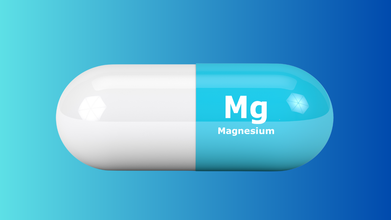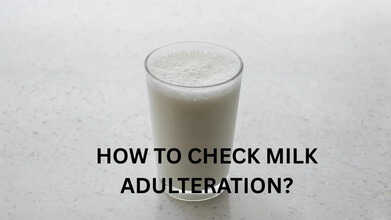- Health Conditions A-Z
- Health & Wellness
- Nutrition
- Fitness
- Health News
- Ayurveda
- Videos
- Medicine A-Z
- Parenting
- Web Stories
Should You Be Skipping Dinner To Lose Weight?

Image Credits: Canva
Most of us have grown up hearing that skipping meals, particularly dinner, can have a big effect on weight loss. My first experience trying to lose weight was eliminating dinner altogether. It seemed like a simple solution—less food equals fewer calories, which should, in theory, result in weight loss. But what I had no idea of was how this skipping dinner impact my energy level, mood, and even capability to make healthier food choices for the next day. It was a fleeting exercise that left me feeling heavier rather than leaner.
We've all been told that breakfast is the key to the day, but dinner is important as well. It's the final substantial meal before a lengthy period of fasting through the night, providing your body with the fuel it needs to get you through the night. But in today's busy world, dinner is the first meal to be cut because of busy lives, diet fads, or plain old fatigue.
Missing dinner is sometimes done on purpose, such as with intermittent fasting, where individuals eat within a time-restricted window that usually does not include evening meals. Others may miss dinner inadvertently because their lunch was so satisfying that they didn't need to eat again until bedtime. But does this habit actually assist with weight loss? The response is not quite as straightforward as it appears.
The theory behind skipping meals is simple: fewer meals mean fewer calories, resulting in weight loss. But the human body is different. When we skip meals, metabolism decreases and fat-storing enzymes rise as a survival mechanism. What this means is that when we eat again, the body might store fat instead of burning it, undoing the very intention of meal skipping.
Skipping meals is commonly described as abstinence from calorie consumption (solid or liquid) for longer than five hours between rising and going to bed. Short-term fasting is probably good for one's health, but chronic and unsystematic patterns of eating are likely to create metabolic aberrations, hunger, and unhealthful eating patterns.
Importance of Dinner in a Balanced Diet
Dinner is not an ordinary meal—it's a valuable time to feed your body vital nutrients. It's also the longest interval during a 24-hour span with no food. A study in the American College of Pediatricians emphasizes that evening meals enhance nutrition and decrease childhood obesity risk. In addition, dinner is the time when individuals tend to have their largest vegetable serving, adding to general health.
In the Scientific Report of the 2020 Dietary Guidelines Advisory Committee, adults have been shown to take in more calories for dinner than for any other meal. This means eliminating dinner altogether can cause a lack of nutrition, as opposed to successful weight loss. Even more important is timing of meals—eating late in the evening disrupts circadian rhythms and affects weight regulation and digestion.
Why Intermittent Fasting Doesn’t Work for Everyone?
Intermittent fasting (IF) has become popular as a means of weight loss, but it's not for all. The principle behind IF is that limiting food to certain time windows regulates the metabolism and minimizes total calorie intake. According to research, individuals who fast between meals or skip breakfast might not get adequate fiber, causing digestive and cardiovascular problems (Current Obesity Reports).
For others, IF may be a great means of managing calorie consumption, but for others, it will cause them to overeat outside of fasting periods, eliminating any benefits. If you catch yourself binge-eating after fasting, missing meals may not be an option for you in the long term.
What Happens to Your Body When You Skip Dinner?
Each time you eat—or skip eating—your body goes through physiological responses. A Current Opinion in Biotechnology review outlines why irregular meal patterns cause disruption of circadian rhythms and affect hunger regulation and metabolism. Long-term skipping of meals has also been associated with cardiovascular hazards. According to a study published in The Journal of the Academy of Nutrition and Dietetics, one-meal-per-day eating leads to increased mortality risk and meal omission during lunch or dinner time results in increased risk for heart disease.
Also, metabolism is very important in weight loss. Aerobic exercise may burn fat, but the most effective way to increase metabolism is strength training. Regularly skipping meals can lead to slowing down of metabolism, thus making weight loss more difficult in the long run.
Can Skipping Dinner Help You Lose Weight?
Skipping dinner may look like a quick way to lose weight. Studies indicate that meal skipping lowers the calorie intake for a day by an average of 252 to 350 calories (USDA Data). According to research in Nutrients, though, skipping dinner is the strongest predictor of weight gain, not loss. In addition, eating meal skips has been associated with a higher risk of developing eating disorders (Eating and Weight Disorders).
Breakfast is one of the most commonly skipped meals, but dinner gets the axe as well. If you're thinking about skipping a meal, try this: at the next meal, how do you feel? Do you end up making bad food choices, getting too hungry, or overeating the next day if you skip dinner? Then it's probably not a good idea for you.
For those who need to skip dinner because of a late lunch, shift work, or intermittent fasting, it is crucial to make sure the meals that you do consume are nutritionally balanced. Seeking the advice of a registered dietitian may assist in developing an eating plan that satisfies your dietary requirements.
Should You Skip Dinner?
Missing dinner occasionally won't harm your health, particularly if you'd eaten a heavy late lunch or snacks. But regular practice might end up doing more harm than good, such as slowing down your metabolism, making you hungrier, and even resulting in long-term weight gain.
If you’re looking to manage your weight, focus on portion control, balanced meals, and strength training instead of eliminating meals. The key to sustainable weight loss isn’t skipping dinner—it’s creating a healthy, consistent eating pattern that supports your body’s needs.
Why Magnesium Matters More Than You Think

Credits: Canva
Magnesium supplements are everywhere. Whether you see it on pharmacy shelves or wellness blogs and social media where influencers who swear by them. You’ve probably heard someone claim that a daily magnesium tablet can help you sleep better, ease muscle cramps, or boost your mood. But do you actually need one, or is this just another wellness trend gone too far?
What Is Magnesium and Why Do We Need It?
Magnesium is an essential mineral that plays a crucial role in over 300 biochemical reactions in the body. It helps regulate muscle and nerve function, supports a healthy immune system, builds protein, maintains blood sugar and blood pressure levels, and aids in energy production.
Because the body doesn’t produce magnesium on its own, it must come from external sources such as food or supplements. The recommended daily intake varies: 310–420 mg for adults and 30–410 mg for children, depending on age and sex.
The good news? A balanced diet can easily meet these requirements. Magnesium-rich foods include nuts and seeds, leafy green vegetables, legumes, seafood, whole grains, and meat. Even dark chocolate can help, 100 grams of dark chocolate contains around 146 mg of magnesium.
Who Is at Risk of Magnesium Deficiency?
Most people get enough magnesium from food, but certain groups are more vulnerable to deficiency. These include people with gastrointestinal disorders such as Crohn’s disease or coeliac disease, those with type 2 diabetes, people who consume excessive alcohol, and older adults.
If you’re low on magnesium, you might notice symptoms such as muscle twitches, spasms, fatigue, low appetite, nausea, or an irregular heartbeat. However, the only way to confirm a deficiency is through a blood test prescribed by your doctor, which, in most cases, is covered by Medicare.
Can Magnesium Supplements Really Help?
Magnesium supplements are often promoted as a solution for muscle cramps, migraines, and insomnia. But do they actually work?
While magnesium deficiency can lead to cramps, most cases of muscle cramps are not due to low magnesium. Research shows limited evidence that supplements prevent cramps, especially in older adults.
The link between magnesium and better sleep is also unclear. Some studies found it helped people fall asleep faster, while others found no significant difference.
When it comes to migraines, evidence is stronger. Studies suggest that taking 122–600 mg of magnesium daily for 4–24 weeks may reduce the frequency and severity of migraines in some people.
Are Magnesium Supplements Safe?
In general, magnesium supplements are safe when taken in the recommended amounts. However, too much can lead to nausea, abdominal cramps, and diarrhea, because magnesium draws water into the intestines.
Taking extremely large doses (around 5,000 mg daily) can cause magnesium toxicity, which is dangerous. Always check with your doctor before starting supplements, especially if you take other medications.
Different Forms and What to Watch Out For
Magnesium is available in tablets, powders, and even topical forms like creams and bath salts. While these skin-based products may raise magnesium levels slightly, they’re less effective than oral supplements or food sources.
When buying supplements, check the label carefully. Most tablets contain 150–350 mg of magnesium, but formulations vary widely. Some also include additional nutrients like vitamins B6, C, or D, and minerals like calcium or manganese.
Be cautious with vitamin B6, high intake can cause nerve damage over time. If you already take a multivitamin containing B6, avoid magnesium supplements that also include it.
Think Your Milk Is Fresh? Simple Ways To Spot Adulteration At Home

Credits: Canva
Milk is one of the most common items found in every household and is considered a wholesome food packed with calcium, protein, and vitamin D.
It plays an important role in maintaining strong bones, building muscles, and supporting overall health. Because of its nutritional richness, milk is often called a complete food. However, it is essential to ensure that the milk you consume is pure and free from adulteration. Contaminated or diluted milk can lose its nutritional value and even harm your health. Fortunately, there are simple methods you can try at home to find out whether your milk is pure or adulterated.
What Is Milk Adulteration?
Food adulteration is the intentional act of reducing the quality of food by mixing or replacing it with inferior substances, or by removing essential components. The same applies to milk. While contamination of food can happen accidentally during storage, transport, or distribution, adulteration is done deliberately for profit.
Milk adulteration involves adding materials such as water, urea, detergent, or other chemicals to increase volume or extend shelf life. This practice reduces the nutritional value and can pose serious health risks to consumers.
How To Check Milk Adulteration at Home
There are a few simple ways to check for adulteration using common items at home:
- Water Test: Pour a small amount of milk onto a slanted surface. Pure milk flows slowly, leaving a white trail, while milk mixed with water flows quickly and leaves little or no mark.
- Detergent Test: Shake equal parts of milk and water. Pure milk forms a light foam, whereas adulterated milk creates thick, soapy froth.
- Starch Test: Add a few drops of iodine solution to the milk. If it turns blue, starch has been added.
- Urea Test: Mix a small amount of milk with soybean powder and dip red litmus paper into it. If the paper turns blue, it indicates the presence of urea.
What Happens When You Consume Adulterated Milk
Regularly drinking adulterated milk can cause several health issues from short-term stomach discomfort to severe, long-term illnesses. The exact effects depend on what substance has been added, ranging from diluted water to harmful chemicals.
Immediate Health Effects
- Digestive problems: Contaminants like urea, detergent, or unclean water can cause nausea, vomiting, diarrhea, and stomach cramps.
- Irritation and burning: Strong alkaline substances such as caustic soda may burn the mouth, throat, and digestive tract, damaging body tissues.
- Allergic reactions: Some chemical additives and impurities can trigger allergies, leading to rashes, itching, or breathing difficulty.
Long-Term Health Consequences
- Kidney damage: Chemicals like urea overwork the kidneys, increasing the risk of long-term damage or kidney failure.
- Liver problems: Preservatives such as formalin (formaldehyde) used to prolong milk’s freshness can harm the liver over time.
- Cancer risk: Long exposure to toxic compounds, including formalin and certain pesticides, has been linked to cancer.
- Heart disease: Artificial fats or vegetable oils added to milk can raise bad cholesterol, contributing to heart problems.
- Hormonal imbalance: Cattle injected with hormones like oxytocin can pass traces into milk, disrupting natural hormone levels in humans.
- Weakened immunity: Consuming impure milk regularly can weaken the immune system, making you more prone to infections.
- Nutritional deficiency: When milk is diluted or its nutrients are replaced with cheaper additives, it loses its health benefits. This is especially harmful for children, as it can affect their growth and development.
Best Time To Have Dinner? Wrap Up Your Dinner By 7PM, According To US Doctor

Credits: Canva
Have you ever heard from your grandparents that you must wrap your dinner up before the sundown? An old saying, is today's science, as a US doctor, Dr Ashley Lucas, PhD nutritionist and dietitian explains why is it beneficial to eat your dinner early. Lucas says that the ideal time to have dinner can in fact help you lose weight and shed some extra pounds.
Rising Cases Of Obesity in the US
The US is grappling with the rising cases of obesity. More than 2 in 5 adults are obese, which makes it nearly 42% of the population, as per the data by the US Centers for Disease Control and Prevention (CDC).
Several studies too have predicted that by 2050, the United States may face an obesity epidemic. Being overweight or obese increases the risk of many chronic diseases, including type 2 diabetes, heart disease, stroke, high blood pressure, high cholesterol, and certain kinds of cancer. This is why maintaining an ideal weight for body is crucial for a healthy living.
What Did The Expert Say?
While eating a well balanced food is necessary, the time when you have your dinner really matters.
Dr Lucas says that there is a golden rule for having dinner. The way to know is to follow the sun, as it is in this pattern that regulates hormones.
"The ticket to success is really to follow the sun. Our bodies, metabolism, and hormones are most efficient at digesting and metabolizing food during daylight hours. So, aim to wrap up your dinner by 6 to 7pm and strive for a 12-hour gap before your next meal," said Dr Lucas in an Instagram video.
Why Does The Time Matter?
"If you eat close to your bedtime, then your sleep is not going to be as deep," she says. "Well, munching close to bedtime can affect your sleep quality, leading to less restful nights. Plus, there are some genetic factors that link late night eating to a higher risk of type 2 diabetes," she further added.
There are studies too that also suggest the same. However, skipping meal is also not ideal as it hinders your biological clock and sleep.
What Happens When You Eat Late?
Eating late could lead to acid reflux, and also weight gain. The theory that suggests the weight gain is called food-induced thermogenesis, which is the time your body takes to burn the food you eat. This is higher in the morning and lower in the evening. This is why, wrapping up your dinner by 7pm is ideal. However, more research is still required in this field.
There are also numerous studies that show that eating late may increase the risk of metabolic syndrome. It is a group of conditions that includes insulin resistance, obesity, high blood pressure, and high cholesterol.
If you also go to bed shortly after having a feal, it may increase the risk of acid reflux. This happens when acid in stomach begins to irritate the esophageal lining. If it happens for a long time, it could cause gastroesophageal reflux disease (GERD).
Eating late could also lead to overeating, or choose easy, especially foods which are unhealthy. A study also showed that among the 104 people with obesity, 45% chose sweets as the snack of choice in the evening and night.
© 2024 Bennett, Coleman & Company Limited

